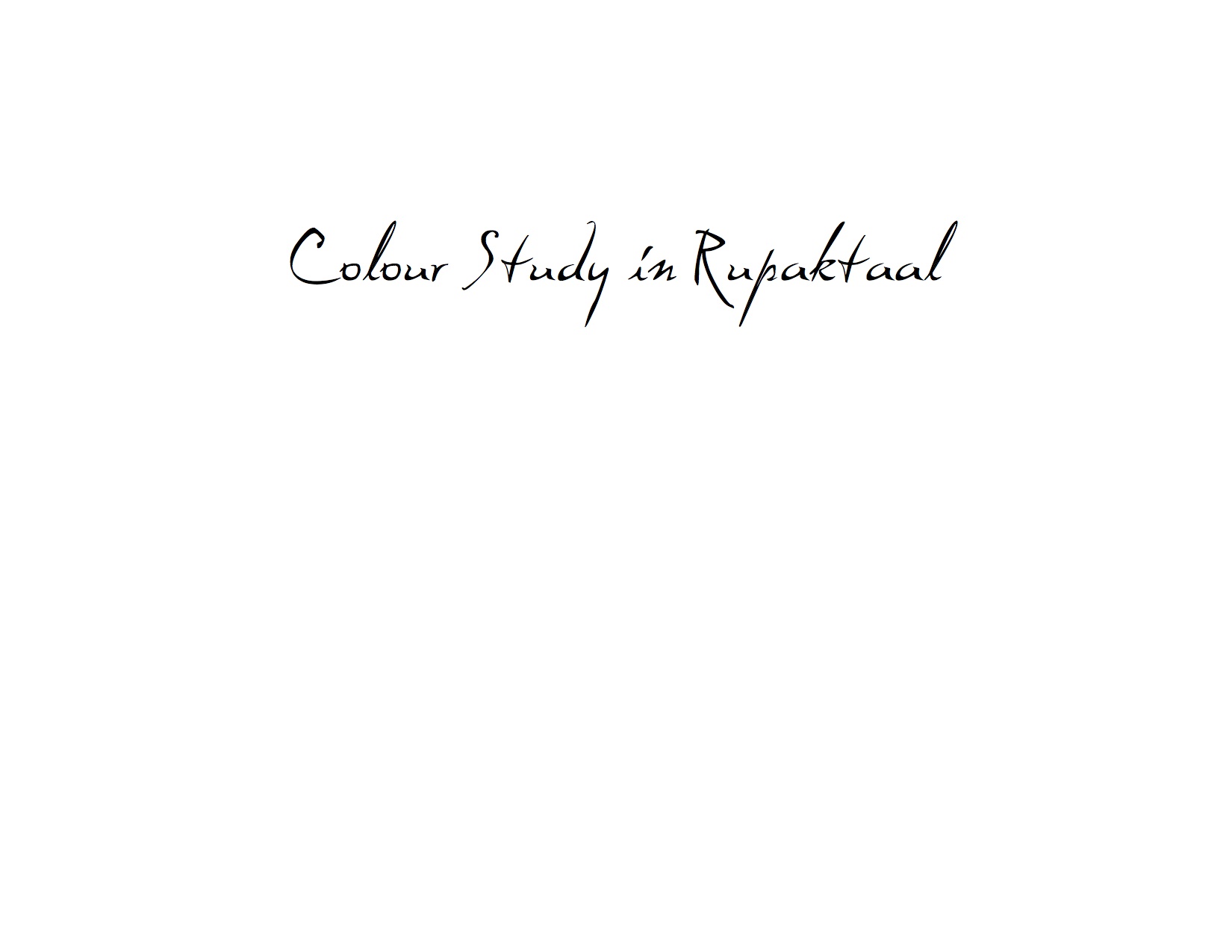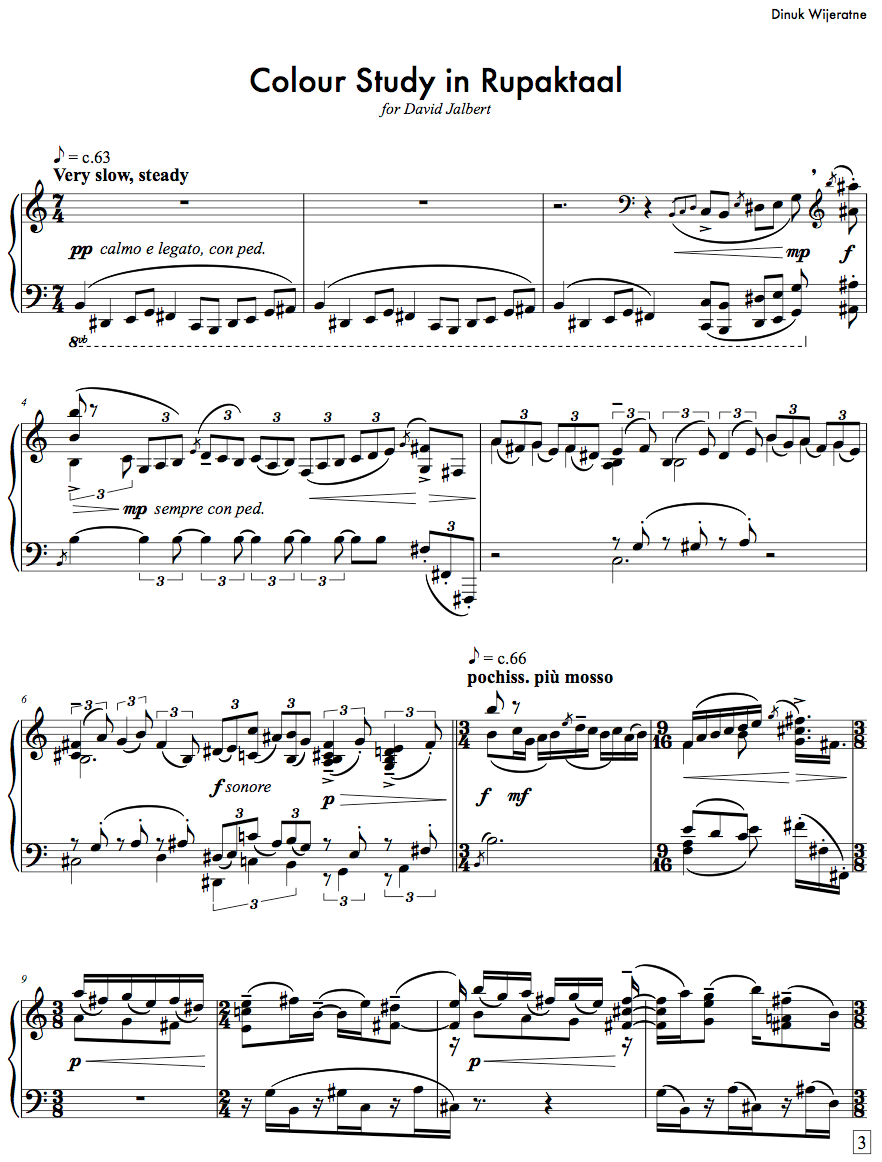Colour Study in Rupaktaal (2007)
for David Jalbert
Duration: 12-13 minutes
Instrumentation: solo piano
World premiere: ‘Music Toronto’ series – Toronto, Ontario, May 2007
Commissioned by David Jalbert

for David Jalbert
Duration: 12-13 minutes
Instrumentation: solo piano
World premiere: ‘Music Toronto’ series – Toronto, Ontario, May 2007
Commissioned by David Jalbert
Composer’s original program note (2007):
“I always say, perhaps only in half-jest, that in my next life I will be a Tabla player. Though I am a South-Asian with an exclusively Western Classical musical training, I grew up with the sounds of Indian Classical music in my ear. The various elements of Western music, such as harmony, texture etc., have undergone both unceasing evolutions and drastic revolutions throughout history. The classical music of the Indian subcontinent, however, focuses primarily on two of these elements: melody (set in ‘raga’), and rhythm (set in ‘tala’). From a Western perspective it is perhaps unusual to listen to a music that concerns itself, not with the type of multi-voice counterpoint we expect from Bach or Brahms, but rather the rich, nuanced interplay of melody and rhythm. I was drawn instantly to its unique rhythmic language. Over the years, as I delved deeper, I was awed by the great rhythm virtuosi of the North Indian tradition, and developed an obsession for the music associated with the king of Indian percussion instruments: the tabla.
The word ‘rupaktaal‘ is bipartite: taal, meaning ‘set in a rhythmic cycle’, and rupak meaning ‘of seven beats’. In a traditional solo tabla recital, the taal is maintained by an accompanist who plays an underlying, cyclic melody, which continues throughout the percussion soloist’s many rhythmic and virtuosic variations. ‘Colour Study in RupakTaal‘ establishes such a melody at the outset, in the left hand, rather like a ground-bass. Soon afterwards, a second melodic line is established, representing the rhythmic variations of the tabla. For a few minutes, the two melodic lines are heard separately before being heard in counterpoint for the rest of the piece; the right hand weaving its tabla-inspired patterns around the ground-bass. The nature of the original tabla composition is such that the two lines are always in counterpoint. The ground-bass remains in one tempo, while each repetition of the right hand tabla line appears at a faster tempo at each successive repetition. The effect is a sense of acceleration from slow to as-fast-as-possible, with the right hand constantly changing into ‘higher gears’. True to a traditional tabla recital, there are moments of resolution after every few cycles, when the endings of both lines coincide as precisely and climactically as the tabla soloist can make them.
Although the piano is simultaneously playing both the character of ‘tabla soloist’ and ‘sympathetic accompanist’, it was never my intention to recreate a traditional Indian tabla composition for the piano. I have chosen instead to use the original rhythmic concept – i.e. one line which accelerates incrementally away from another – as a scaffolding upon which one can experiment quite liberally with colour, as the title suggests.”

Purchase full score and parts in PDF format – $30 USD (please allow up to 48 hours for email delivery)